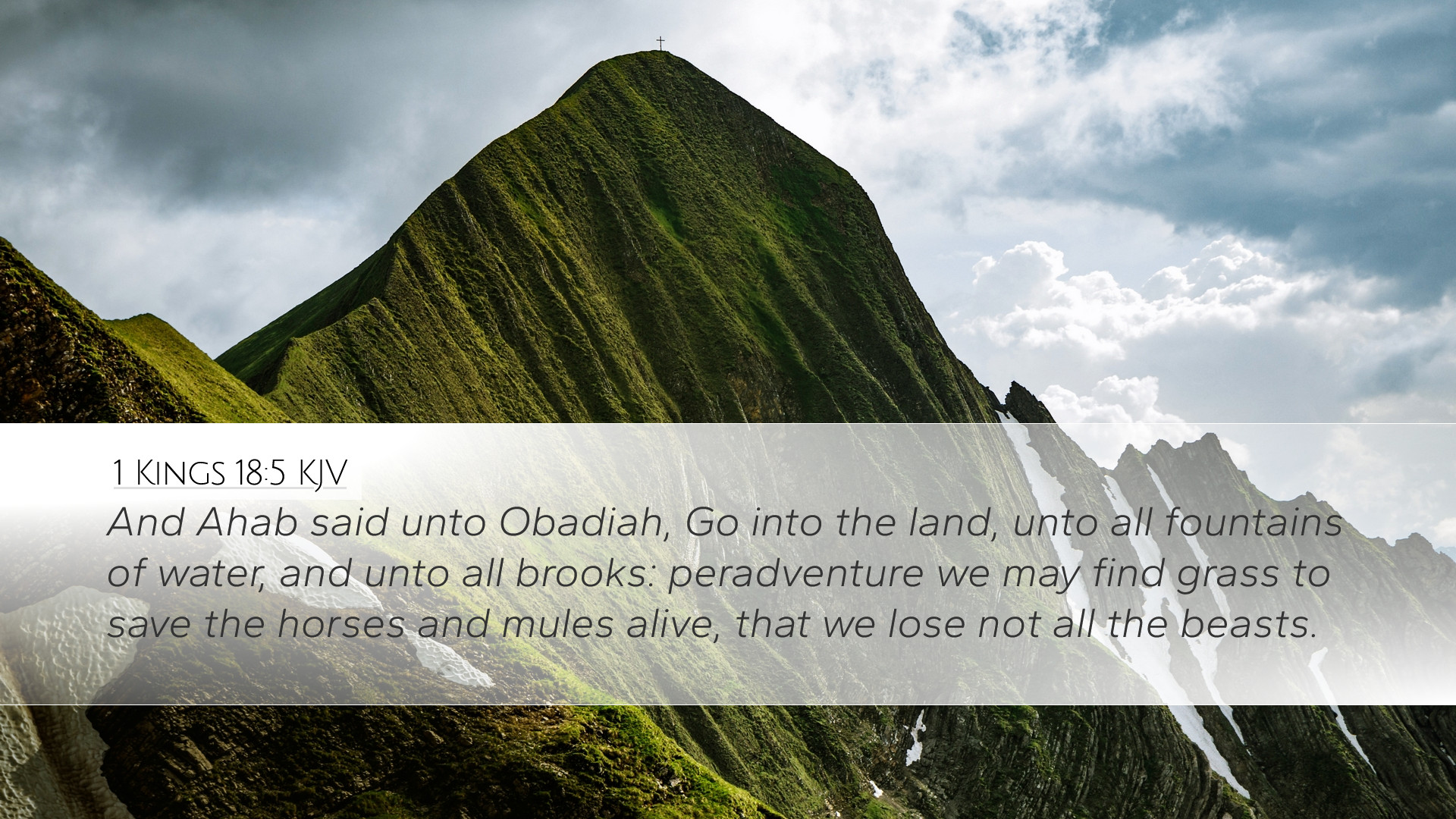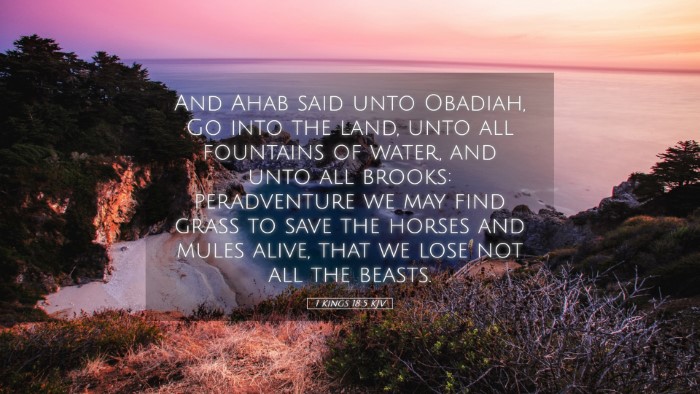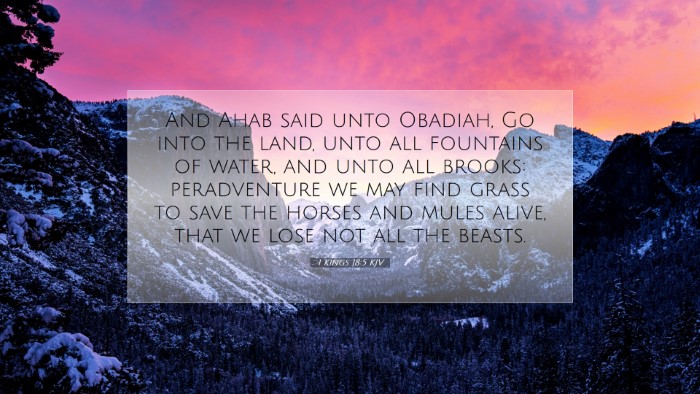Commentary on 1 Kings 18:5
Verse Context: 1 Kings 18:5 states, "And Ahab said unto Obadiah, Go into the land, unto all fountains of water, and unto all brooks: peradventure we may find grass to save the horses and mules alive, that we lose not all the beasts." This verse captures a critical moment during a severe drought in Israel, highlighting the desperate measures taken by King Ahab and Obadiah.
Historical Background
The backdrop of this passage is the reign of King Ahab, notorious for his idolatry and the introduction of Baal worship into Israel. His tenure is marked by a devastating drought, a judgement from the Lord communicated through the prophet Elijah. This drought not only threatened the people but also the royal livestock, which Ahab sought to preserve.
Theological Significance
1. Dependency on God: The actions of Ahab underscore human vulnerability and the dependence on divine providence. Ahab's initiative to search for water reflects a realization of his limitations. Even a king is not immune to the consequences of sin and divine judgement.
2. God’s Sovereignty and Judgment: The drought serves as a reminder of God's control over nature and His sovereign right to judge His people. The context of Ahab's plea for survival emphasizes the seriousness of turning away from God's commandments.
Commentary Insights
Matthew Henry's Commentary
According to Henry, this verse illustrates Ahab's concern for the preservation of life, yet it also highlights his misplaced priorities. While he seeks grass to save his horses and mules, his spiritual condition remains unchanged. The drought is a direct consequence of Israel's sin against God, and Ahab, in his quest for temporary relief, fails to acknowledge the cause of their destruction.
Albert Barnes’ Notes on the Bible
Barnes points out that Ahab’s directive to Obadiah reveals the king's desperation. During this time of crisis, he turns to human efforts rather than seeking the Lord. Barnes notes that the search for water symbolizes humanity's futile attempts to solve problems without reliance on divine intervention. This serves as a caution against self-sufficiency in crisis situations.
Adam Clarke’s Commentary
Clarke emphasizes the role of Obadiah, a faithful servant of the Lord amidst a corrupt system. His obedience to Ahab shows a dichotomy of faithfulness in adversity. Obadiah’s willingness to search for sustenance for the animals, despite the danger posed by a tyrannical king, underscores the tension of being a believer in a hostile environment. Clarke further suggests that this moment is deeply infused with spiritual significance and calls for faith amidst despair.
Applications for Today
- Recognizing Spiritual Drought: Just as Ahab faced a physical drought, modern believers must recognize times of spiritual famine in their lives. Is our search for sustenance coming from God or from human endeavors?
- Faithful Service in Adversity: The example of Obadiah encourages believers to remain faithful to God even when surrounded by ungodly influences. How can we serve faithfully in our own circles of influence today?
- The Importance of Prayer and Seeking God: In times of crisis, the narrative urges believers to seek divine help rather than resorting solely to practical solutions. What areas in our lives require more trust in God’s provision?
Conclusion
1 Kings 18:5 provides a poignant reflection on human desperation and the need for reliance on God. As pastors, students, theologians, and scholars reflect on this verse, may they be reminded of the continual need for repentance, prayer, and acknowledgment of God's sovereign hand in both judgment and provision.


